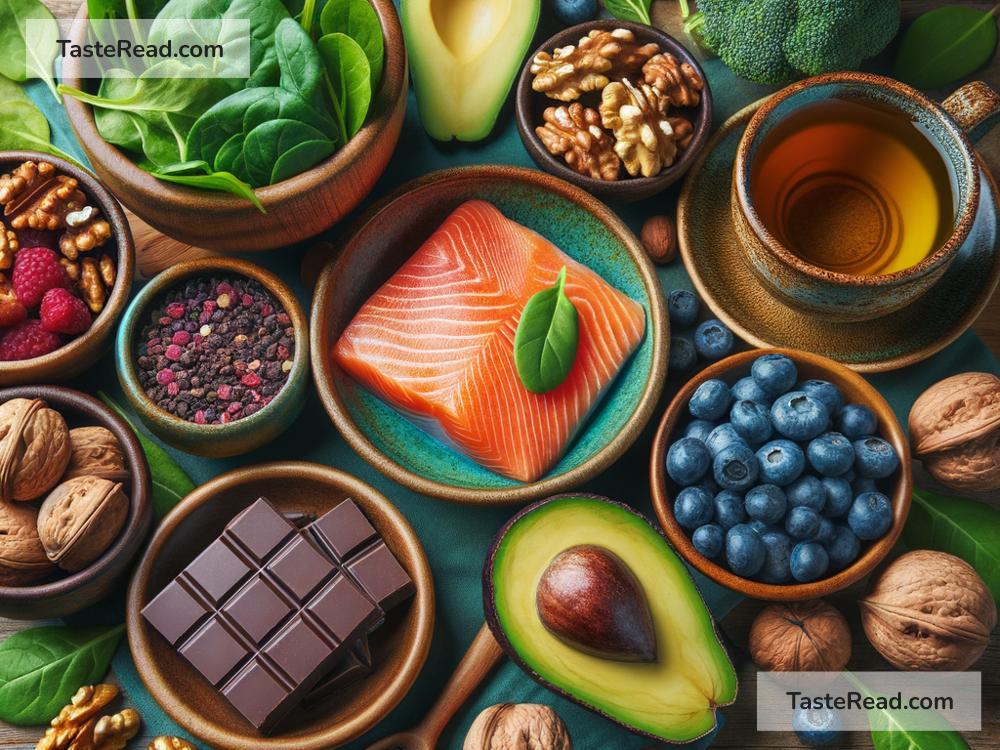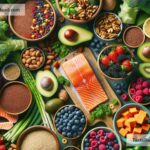Eating Away the Blues: Foods That Help Reduce Depression
Depression is a tough challenge that many people face. It can make everyday tasks feel exhausting, drain your energy, and leave you feeling lost or hopeless. While professional help like therapy and medication can be life-changing, there’s also another way to support your mental health: the foods you eat. Certain foods contain nutrients that can boost your mood and help your brain function better. Below, we’ll explore some of the best foods to include in your diet to help fight depression.
1. Leafy Greens: Nature’s Superfood
Leafy greens like spinach, kale, and Swiss chard are packed with nutrients that benefit both your body and mind. They are rich in folate, a vitamin that plays an important role in brain health. Studies have shown that people with depression often have low levels of folate. Adding leafy greens to your meals can help support your mood.
Try incorporating these greens into salads, smoothies, or soups. If you’re not a fan of raw greens, steaming or sautéing them with olive oil and garlic can make them more enjoyable.
2. Fatty Fish: Fueling Your Brain with Omega-3s
Fatty fish like salmon, mackerel, and sardines are excellent sources of omega-3 fatty acids, which have been linked to improved mental health. Omega-3s support brain function and reduce inflammation, which may play a role in depression. Research suggests that consuming omega-3s can help improve mood and lower symptoms of depression.
If you’re not a fan of fish, you can opt for omega-3 supplements, flaxseeds, chia seeds, or walnuts. These are plant-based alternatives to get your daily dose of this brain-boosting nutrient.
3. Whole Grains: The Carb Connection
Whole grains like oats, brown rice, and quinoa are great for steadying your mood. They provide complex carbohydrates, which help your body release serotonin—a feel-good chemical in your brain that helps fight depression. Unlike sugary snacks, which can cause spikes and crashes in your energy, whole grains provide a steady source of fuel for your brain throughout the day.
Start your morning with oatmeal or enjoy a hearty serving of brown rice with dinner. Whole grains are versatile and easy to include in many dishes.
4. Berries: Tiny Mood-Boosters
Blueberries, strawberries, and blackberries are small fruits with big benefits. These colorful berries are packed with antioxidants that protect your brain from stress and inflammation, two things linked to depression. Studies have shown that eating more fresh fruits and vegetables, including berries, can significantly reduce symptoms of depression.
Add berries to your yogurt, smoothies, or simply eat them fresh as a snack. Their natural sweetness makes them a satisfying treat for your taste buds and your brain.
5. Nuts and Seeds: Snack Smart for Mental Health
Nuts and seeds are rich in healthy fats, protein, and nutrients like magnesium and vitamin E. Magnesium, in particular, plays an important role in regulating mood. Low levels of magnesium have been associated with increased risk of depression.
Almonds, walnuts, sunflower seeds, and pumpkin seeds can be great additions to your diet. Sprinkle them on your salads, oatmeal, or enjoy them as a quick snack. Just remember to eat them in moderation, as they’re high in calories.
6. Fermented Foods: Gut Health, Brain Health
Did you know your gut and your brain are closely connected? Fermented foods like yogurt, kefir, kimchi, and sauerkraut contain probiotics, which are healthy bacteria that support digestion and gut health. A healthy gut can lead to a healthier brain, as some studies suggest that gut bacteria influence mental health.
Include a serving of fermented foods in your meals to improve your mood over time. Look for options with “live and active cultures” on the label to ensure you’re getting those beneficial probiotics.
7. Dark Chocolate: A Sweet Pick-Me-Up
Good news for chocolate lovers: dark chocolate (at least 70% cocoa) can boost your mood! It contains flavonoids and other compounds that improve brain function and enhance feelings of well-being. Dark chocolate also helps regulate serotonin levels, giving your brain a positive boost.
Enjoy a small piece of dark chocolate as a dessert or mix it into Greek yogurt for a guilt-free indulgence. Just be mindful of portion sizes—too much sugar can have the opposite effect on your mood.
8. Bananas: Nature’s Convenience Food
Bananas are a quick, portable snack that can also support mental health. They contain vitamin B6, which helps your body produce feel-good chemicals like serotonin and dopamine. Bananas also provide natural sugars for a gentle energy boost.
Pair a banana with some peanut butter for a satisfying snack or slice it into your oatmeal for added sweetness and nutrition.
9. Herbs and Spices: Flavorful Stress Fighters
Certain herbs and spices can have mood-boosting effects. For example, turmeric contains curcumin, which has anti-inflammatory properties and may reduce depression symptoms. Cinnamon and ginger are also thought to improve overall mood.
Use these spices to flavor your meals, teas, or smoothies. Adding a little spice to your life might just spice up your mental health, too.
Final Thoughts
Eating healthy isn’t a cure for depression, but it can be an important part of managing your symptoms and improving your overall well-being. By focusing on nutrient-rich foods like leafy greens, fatty fish, berries, nuts, and fermented foods, you can give your brain the support it needs to stay strong.
If you or someone you know is struggling with depression, remember to seek professional help. Combining therapy or medication with a well-balanced diet is a powerful way to take care of your mind and body. So, the next time life feels overwhelming, reach for some of these mood-boosting foods—and take a small step toward feeling better.

